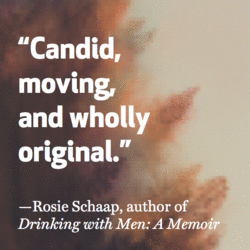Books & Culture
Can You Speed-Read Your Way to Happiness?
Testing out a new app that promises to make you informed and intellectual in just 15 minutes per book

I n the past several days, I have read the following books: Just Mercy, Hillbilly Elegy, Rise from Darkness, and String Theory, David Foster Wallace’s exploration of greatness in tennis. I read Walden while boiling water for pasta and The Bully Pulpit while pretending to use the bathroom to get a break from my toddler.
Since you’re wondering: no, I haven’t taken a speed reading course (although I did read 10 Days to Faster Reading). I signed up for Blinkist.
Blinkist is an app that allows you to “access … key insights from 2,000+ bestselling nonfiction books, transformed into powerful packs you can read or listen to in just 15 minutes.” In other words, it’s like SparkNotes for the self-help department.
In many ways, Blinkist is not an app that was designed with someone like me in mind. I don’t read much from its staple genres: Personal Growth & Self Improvement, Management & Leadership, Motivation & Inspiration. Anyone can use Blinkist, and it does offer books in topics ranging from Parenting to Politics to Biographies, but its bread and butter — Entrepreneurship & Small Business, Marketing & Sales, Productivity & Time Management — appears to be targeting a market that is decidedly not me.
Blinkist seems built for the type of person who is actively looking for ways to lifehack the time they spend unwrapping their power bars in order to maximize their morning growth potential. The type of person who uses the words “paradigm shift” and “actionable” confidently and without having to Google “business jargon,” like I just did. The type of person who really WANTS to read The 4-Hour Workweek, but just can’t find the time between Crossfit and Extreme Racquetball, which is like regular racquetball but muddy and you won’t shut up about it.
This app is for the type of person who really WANTS to read The 4-Hour Workweek, but just can’t find the time between Crossfit and Extreme Racquetball, which is like regular racquetball but muddy and you won’t shut up about it.
I am not a businessperson, in vocation or temperament. I am also not a person deeply invested in my own personal improvement (but I don’t want to brag). I’m a lowly freelance writer who finds the very idea of a “power nap” offensive, and I’ve never once looked at something and thought, “There’s gotta be a better way!” In fact, as someone who lives with chronic depression, I’m more prone to thinking, “This current solution is bad, but it is the best we can hope for, and who even cares because soon we shall all return to the cold, unforgiving dirt for the Eternal Power Nap.” But it was this fact — that I am someone who both loves to read and is sometimes too depressed or exhausted to do it — that got me thinking about the toxic relationship between depression and productivity (or lack thereof). And I wondered if Blinkist might help.
I went through a long bout of major depressive disorder in college, and the first thing I lost was the ability to read. I was an English major who suddenly couldn’t finish a page: I would stare at my textbooks, my novels, my laptop screen, and the words just swam. It was the feeling you get when you are exhausted and realize that you’ve just read four pages of a book without actually reading a word, only it was everything I read, and it was all the time.

That was a long time ago, but now, even in the midst of the daily, mild depression I now live with quite comfortably, books can quickly become weaponized. That’s because depression will feed on anything, no matter how small or strange or insignificant. In this way, it is the goat of mental illnesses: whether you put filet mignon or a tin can in front of it, it’s going to eat. And I don’t mean a cute goat, by the way, one who goes down slides or sings along to Taylor Swift. I mean a goat that can see an unread book on your nightstand and use it to convince you that not only will you never finish that book, you will never finish any books, reading is a waste of time, and also, even though you still know all of their first and last names, none of your elementary school classmates remember you.
Or a goat who cannot choose its next book because there really are so many books, and there really is so little time, and what if it makes the wrong choice and halfway through discovers that it just doesn’t like Cormac McCarthy and needs to admit that to itself, and this means that it — the goat, obviously the goat — is stupid and is never getting those precious hours back, and why are there so many books to begin with? I love books, but I think there are too many, and I’m pretty sure it’s specifically to torture me. Don’t take my word for it: I think even Ray Bradbury would agree with me on this, since he wrote an entire “how-to” guide on how to solve the book overpopulation problem (unless I am gravely misreading Fahrenheit 451).
I love books, but I think there are too many, and I’m pretty sure it’s specifically to torture me.
Whether a stack of books on your nightstand sends you into an existential crisis, or you’re just a normal busy person, the best part of Blinkist is that it gives you the feeling of accomplishment. When I finished a “book,” I clicked a checkmark, and it congratulated me. “Done and dusted!” it proclaimed, and I got a little serotonin burst. I hadn’t done anything real or important — in truth, I had just read a very poorly worded, laughably simplified summary of a heavily researched, 400-page book — but that didn’t matter. There’s also nothing inherently impressive about, say, leaving the house, but if you can overcome the inertia of your own depression to turn that knob and step outside, then, at least in that moment, it’s enough.

Blinkist also aids the decision-making process. Reading the summary of Hillbilly Elegy confirmed that I didn’t really need to read the whole book. “Reading” String Theory by David Foster Wallace fascinated me enough that I plan on reading the whole book. It’s like when people justify illegally pirating music by saying they’ll probably buy the album anyway, except it’s not a lie.
Blinkist is decidedly not a substitute for reading books. It may be a substitute for reading books that no one actually needs to read in the first place, books that only contained 15 minutes worth of an idea but had to be stretched out to 200 pages for the publishers. The Four Hour Workweek? Check your email less, be rich to begin with. Boom. Done and dusted.
Blinkist is decidedly not a substitute for reading books. It may be a substitute for reading books that no one actually needs to read in the first place.
But the thing that brought me the most joy from Blinkist was, more often than not, how bad the summaries were. Here, for example, is how Blinkist introduces the classic transcendental meditation that is Walden:
You’ll also discover:
* why devoting yourself to your work can make you a fool;
* how so-called “savages” are actually very advanced when it comes to housing; and
* which one of Thoreau’s visitors had a habit of crawling up his leg.
Spoiler alert: that last one was Emerson!
Today, I cancel my free 7-day trial to Blinkist. I’ll spend my money on SSRI co-pays instead of the $79.99 Premium subscription. And if I ever change my mind, there’s a whole section on life hacks for happiness.








